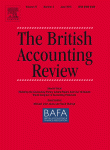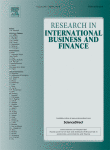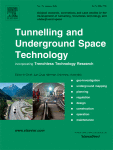چکیده
زبان می تواند نقش مهمی در شکل گیری چگونگی ارتباط و مشروعیت اصلاحات حسابداری و اطلاعات پیرامون انها ایفا کند. به هرحال، بررسی های اندکی انجام شده تا مطالععه کند هنگامی که سیاست مداران تصمیم گیرندگان تغییرات حسابداری هستند چه اتفاقی می افتد،. این مقاله استفاده سیاسی زبان را با بررسی اینکه چگونه اعضای پارلمانی در مورد تصحیحات حسابداری بخش عمومی بحث می کنند ، و استراتژی های لفاظی مختلفی را برای مشروعیت یا غیرمشروع کردن آنها بکار گسترش می دهند کشف می کند. از طریق آنالیز بحث های پارلمانی ایتالیایی در دهه ۱۹۹۰ و ۲۰۰۰، این مطالعه تاکید می کند چگونه استفاده از زبان می تواند تمرین قدرت را با گسترش استدلال هایی به صورت لفاظی غالب با استراتژی های اختیارات و اخلاقیات تسهیل کند. استدلال های لفاظی پیش رو به سیاستمداران اجازه می دهد تا ضرر خود از قدرت را به نفع اتحادیه اروپا پنهان کنند، که عملیات و پیشنهادات آنها را به صورت مهم ویا به نفع بهره عمومی پیش بینی می کند.
Abstract
Language can play an essential role in shaping how accounting reforms and the information around them are communicated and legitimated. However, scant consideration has been given to study what happens when politicians are the decision makers of accounting changes. This paper explores the political use of language by investigating how the Members of Parliament discuss about public-sector accounting reforms, and deploy different rhetorical strategies to legitimate or de-legitimate them. Through the analysis of Italian parliamentary debates in the 1990s and 2000s, this study highlights how the use of language can facilitate the exercise of power by deploying arguments rhetorically dominated by authorisation and moralisation strategies. The rhetorical arguments brought forward allow politicians to disguise their loss of power in favour of the European Union, depicting their actions and proposals as necessary and/or in favour of the public interest.





